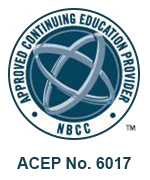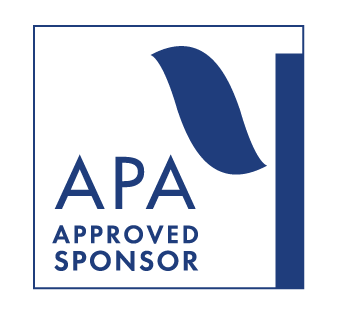Weekend Conference October 4-6, 2024 will be offered Online. Open to any mental health professional or mental health professional-in-training.
Program Date(s):
October 4, 2024Evolving Psychoanalytic Technique in the Context of Contemporary Psychoanalytic Psychotherapies
Overview
Evolving Psychoanalytic Technique in the Context of Contemporary Psychoanalytic Psychotherapies
Through a series of theoretical and clinical case presentations, the conference will explore Kernberg’s seminal contributions to psychoanalytic theory and technique, including the development of Transference-Focused Psychotherapy (TFP); the emphasis on the centrality of the therapeutic relationship; and the focus on the integration of object relations theory, ego psychology and British psychoanalytic approaches. The conference will also examine the ongoing relevance of Kernberg’s work in contemporary psychoanalytic practice, addressing the challenges and opportunities presented by the treatment of severely ill patients and the need for ongoing innovation and refinement of psychoanalytic technique.
This conference will be of particular interest to psychotherapists, psychoanalysts, psychiatrists, psychologists, and other mental health professionals interested in the treatment of severely ill patients and the ongoing development of psychoanalytic theory and technique. Don’t miss this rare opportunity to learn from a true pioneer in psychoanalysis and elevate your practice to new heights.
The course will use lecture, large group discussion, small group/GAM group discussion, case presentation and discussion and informal discussion to achieve the course objectives.
General weekend schedule
Start and end times are approximate for your personal planning purposes. Detailed times, reading lists, and educational objectives will be provided to registered participants.
Friday 9:30am – 6:30 pm US ET
Saturday 9:30am – 6:30pm US ET
Sunday 10:00am – 2:00pm US ET
Otto Kernberg, M.D.

Dr. Kernberg is world renowned for his seminal work on borderline and narcissistic personality disorders, providing a theory of the precursors of these disorders as well as therapeutic methods for treating these patients using applied psychoanalysis. He developed Transference-Focused Psychotherapy, a novel and useful framework for coordinating personality disorders along dimensions of structural organization and severity. In addition, his work has been central in integrating postwar ego psychology with Kleinian and other object relations and perspectives. His integrative writing was central to the development of modern object relations, a theory of mind that is perhaps the theory most widely accepted among modern psychoanalysts. He has written about object relations, character pathology, falling in love, as well as about problems in psychoanalytic education.
Otto F. Kernberg, M.D., F.A.P.A., is past Director and Senior Consultant of the Personality Disorders Institute at The New York Presbyterian Hospital, Westchester Division and Professor Emeritus of Psychiatry at the Weill Medical College of Cornell University. Dr. Kernberg is a Past-President of the International Psychoanalytic Association. He is also Training and Supervising Analyst of the Columbia University Center for Psychoanalytic Training and Research.
In the past, Dr. Kernberg served as Director of the C.F. Menninger Memorial Hospital, Supervising and Training Analyst of the Topeka Institute for Psychoanalysis, and Director of the Psychotherapy Research Project of the Menninger Foundation. Later, he was Director of the General Clinical Service of the New York State Psychiatric Institute, and Professor of Clinical Psychiatry at the College of Physicians and Surgeons of Columbia University. From 1976 to 1995 he was Associate Chairman and Medical Director of The New York HospitalCornell Medical Center, Westchester Division. He was Book Editor of the Journal of the American Psychoanalytic Association from 1977-1993. He is the author of many books.
Dr.Kernberg was awarded the l972 Heinz Hartmann Award of the New York Psychoanalytic Institute and Society, the l975 Edward A. Strecker Award from the Institute of Pennsylvania Hospital, the l98l George E. Daniels Merit Award of the Association for Psychoanalytic Medicine, the l982 William F. Schonfeld Memorial Award of the American Society for Adolescent Psychiatry, the 1986 Van Gieson Award from the New York State Psychiatric Institute, the 1987 and 1996 Teacher of the Year Award from The New York HospitalCornell Medical Center, Westchester Division. He was elected to membership of the Society of Scholars of the Johns Hopkins University in 1992. He received the 1993 I. Arthur Marshall Distinguished Alumnus Award, Menninger Alumni Association, The Menninger Foundation, the 1993 Presidential Award for Leadership in Psychiatry from the National Association of Psychiatric Health Systems, and the Distinguished Service Award from the American Psychiatric Association in 1995. He was elected Doctor Honoris Causa by the University of Buenos Aires, Argentina, in 1998, and received the Austrian Cross of Honor for Science and Art, in 1999. In 2007 he received the Golden Medal of Honor to the City of Vienna, and the Thomas William Salmon Medal from the New York Academy of Medicine, New York, New York.
Conference Co-Chairs
Caroline Sehon, MD, FABP, is director of the International Psychotherapy Institute (IPI) and chair of its Overseas Programs for Jiandanxinli, the My Therapist platform in China. At IPI, she is a supervising child and adult psychoanalyst and past chair of the International Institute for Psychoanalytic Training. At the American Psychoanalytic Association, she serves on its Executive Committee as Secretary. She is a clinical professor of psychiatry at Georgetown University, Washington, DC, USA. Author of articles and book chapters on adult and child psychoanalysis, couple and family therapy, her private practice is in Bethesda, Maryland, USA, where she works with individuals, couples, and families.
Tuition and Fees
Registration options:
- Full Conference
- $475 up to 21 days in advance; $525 thereafter
- *Full members: $359
- *Associate members: $410
- Full time students: $175
- Saturday All Day (morning and afternoon): $175
- Saturday Morning only: $100
*Login to the website with your member information to access your discounted registration rate
Continuing Education Credit Hours
Full Weekend Conference:
- 14.5 CE credits
Saturday All Day:
- 6 CE credits
Saturday Morning only:
- 2.5 CE credits
Weekend Conference Attendance Policy
Participants can only earn CE credits for each session they attend in its entirety. No partial credit can be given.
Full Weekend Schedule
14.5 CE credits
Saturday All Day Schedule
6 CE credits
Saturday Morning Schedule
2.5 CE Credits
Educational Objectives
Friday morning, October 4
Presentation: Contemporary Object Relation Theory and its Applications
- Explain the role of internalized object relations in shaping psychic experience and contributing to both normal and pathological development.
- Explain Dr. Kernberg’s proposed revisions to psychoanalytic theory, particularly the shift towards affect systems as primary motivators and the evolving understanding of the dynamic unconscious.
GAM Group
- Apply the Group Affective Model to articulate 3 ways that object relationship interactions with significant others are internalized, and how these internalized object relationships influence both defensive and impulsive processes. And how
- Utilize the GAM group to discuss complex internalized object relationships, making links with clinical examples, theoretical ideas, and personal associations.
Friday Afternoon, October 4
Presentation: Classification and Controversies Regarding Personality Disorders
- Differentiate between levels of personality organization from neurotic to borderline levels of personality organization.
- Explain the clinical implications of different levels of personality organization, namely Normal Personality Organization (NPO), High, Middle, and Low Borderline Personality Organization.
GAM Group
- In your small affective group, highlight 3 key distinctions in identity consolidation, defensive operations, and reality testing between the different levels of personality organization.
- Select 3 clinical vignettes drawn from your practice or readings to apply Dr. Kernberg’s structural approach to classifying personality pathology.
Saturday Morning, October 5
Presentation: Overview of Present-Day Psychoanalytic Technique
- Explain the descriptive, structural, and dynamic features of personality functioning within the framework of object relations theory to facilitate accurate diagnosis and treatment planning for individuals with personality disorders.
- Describe 2 key principles and technical approach of Transference-Focused Psychotherapy for treating patients with borderline personality disorder.
GAM Group
- Explain how transference-focused psychotherapy utilizes transference analysis to address conflicts arising from contradictory internalized object relations.
- Identify 2 clinical examples that demonstrate ways psychotherapists analyze the transference and their countertransference to inform their work.
Saturday Afternoon, October 5
- Apply the clinical presentation by Dr. Ashbach to explain the features of personality functioning within the framework of object relations theory to facilitate accurate diagnosis and treatment planning for individuals with personality disorders.
- Utilize the clinical example provided by Dr. Ashbach to identify the patient’s levels of personality organization from neurotic to borderline levels of personality organization.
- Identify 2 examples from your clinical practice that demonstrate ways psychotherapists analyze the transference and their countertransference to inform their work.
- Select 2 clinical moments drawn from Dr. Ashbach’s presentation that illustrate Dr. Kernberg’s structural approach to classifying personality pathology.
Saturday Plenary, October 5
- Identify two concepts articulated by Dr. Kernberg that are discussed in the plenary
- Identify one example of the hidden, buried, or implicit unconscious during the plenary discussion.
Sunday Morning, October 6
Presentation: Evolving Strategies of Psychoanalytic Psychotherapy
- Explain two evolving clinical strategies (described by Dr. Kernberg) for use in psychoanalysis and psychoanalytic therapy.
- During a psychoanalytic psychotherapy treatment, describe the sequential steps utilized when interpreting object relations activated in the transference.
GAM Group
- Utilize the GAM Group to discuss three of Dr. Otto Kernberg’s recommended clinical strategies from the case material presented in the preceding presentation by Dr. Kernberg
- Within the GAM Group, explain two evolving clinical strategies by making links between evolving clinical strategies and clinical examples drawn from your clinical practice.
Sunday Closing Dialogue
- Name and describe 2 general themes from the conference that will lead to a change in your clinical practice.
- Describe two concepts presented during the conference that will enrich your clinical skills.
Membership Benefits
Become a member of IPI at any level and you will have the option of adding on a Zoom Pro account as one of your member benefits. Associate and Full Members also receive discounted registration fees for most of IPI’s events, a subscription to PEP Web, the online psychoanalytic library, and other benefits depending on membership level.
HIPAA compliant Zoom video accounts are an optional add on for all IPI memberships. IPI has a HIPAA Business Associate Agreement with Zoom, which provides a HIPAA compliant platform for our accounts. HIPPA compliance is strongly recommended for all internet-mediated clinical work and clinical teaching. The “+ Zoom Pro” add-on to the IPI membership gives the user the ability to host online meetings with multiple people at the same time. [Current members can upgrade to the “+ Zoom Pro” account and only pay the difference in price from your current membership level.]
Click for IPI Membership and Zoom Account information
Continuing Education Information
The International Psychotherapy Institute, IPI, is approved by The American Psychological Association to sponsor continuing education for psychologists. IPI maintains responsibility for the program and its content. The International Psychotherapy Institute has been approved by NBCC as an Approved Continuing Education Provider, ACEP No. 6017. Programs that do not qualify for NBCC credit are clearly identified. The International Psychotherapy Institute is responsible for all aspects of the programs. The International Psychotherapy Institute is authorized by the Board of Social Work Examiners in Maryland to sponsor social work continuing education learning activities and maintains full responsibility for this program. This training qualifies for Category I continuing education units. The International Psychotherapy Institute is recognized by the New York State Education Department’s State Board for Social Work as an approved provider of continuing education for licensed social workers #SW-0299.
Participants are responsible for verifying that IPI CE credit is accepted by the licensing boards in their own states.


Should you have any questions about the program or the application process, please feel free to contact:
IPI Administrative Team - contactus@theipi.org

